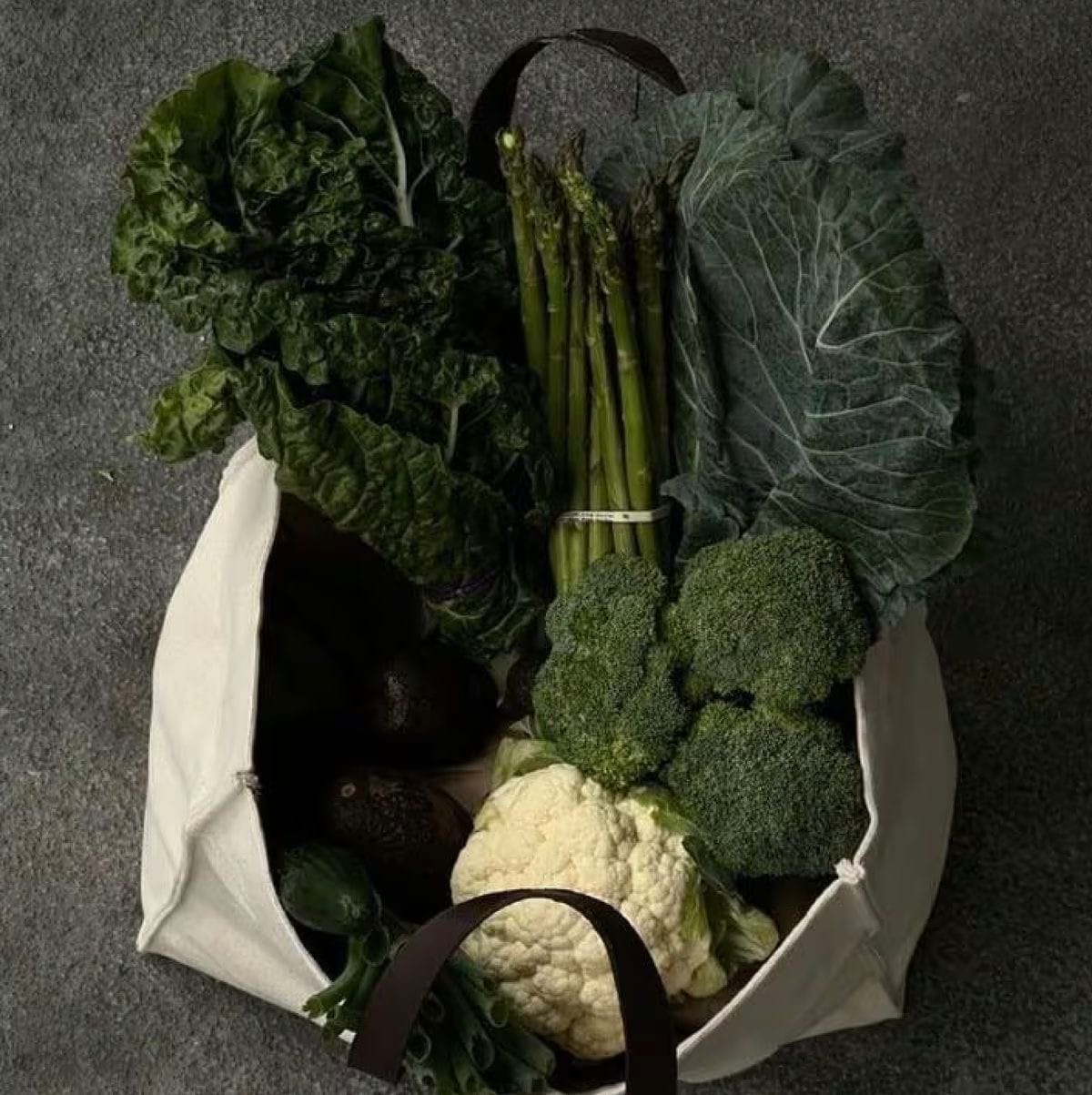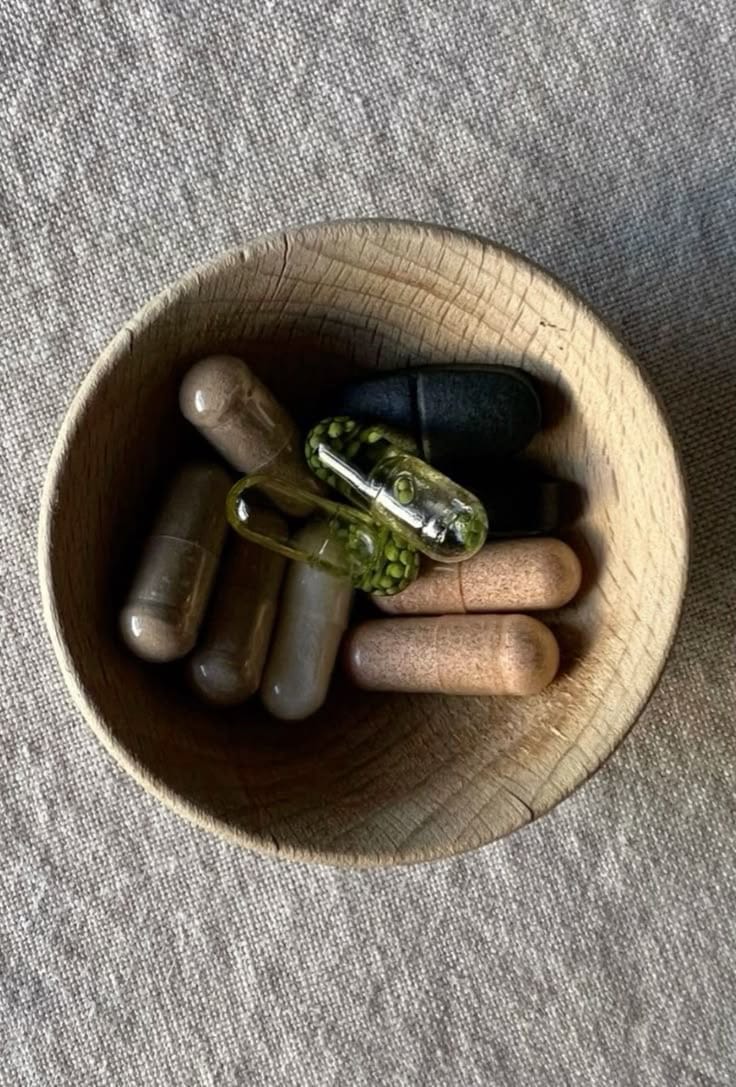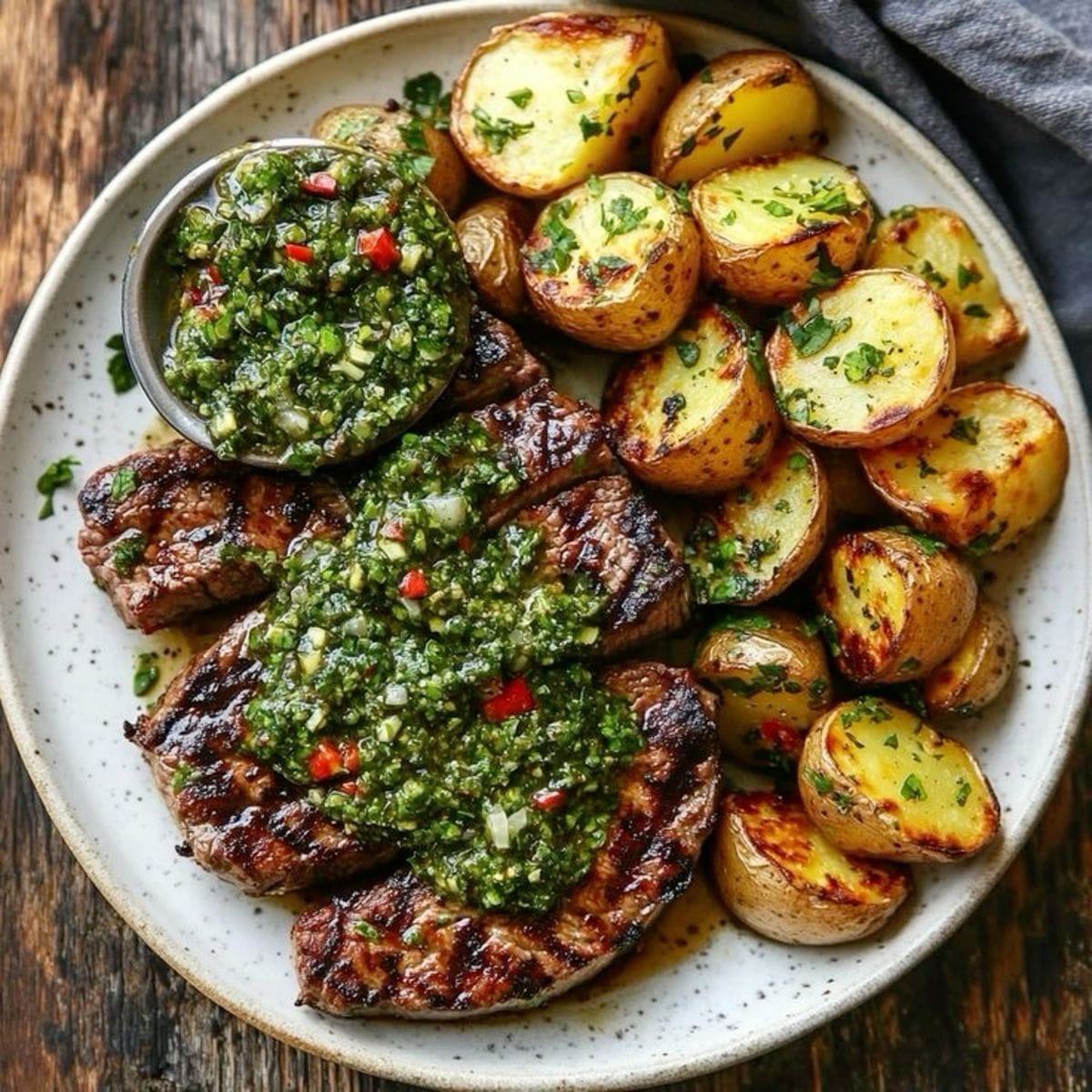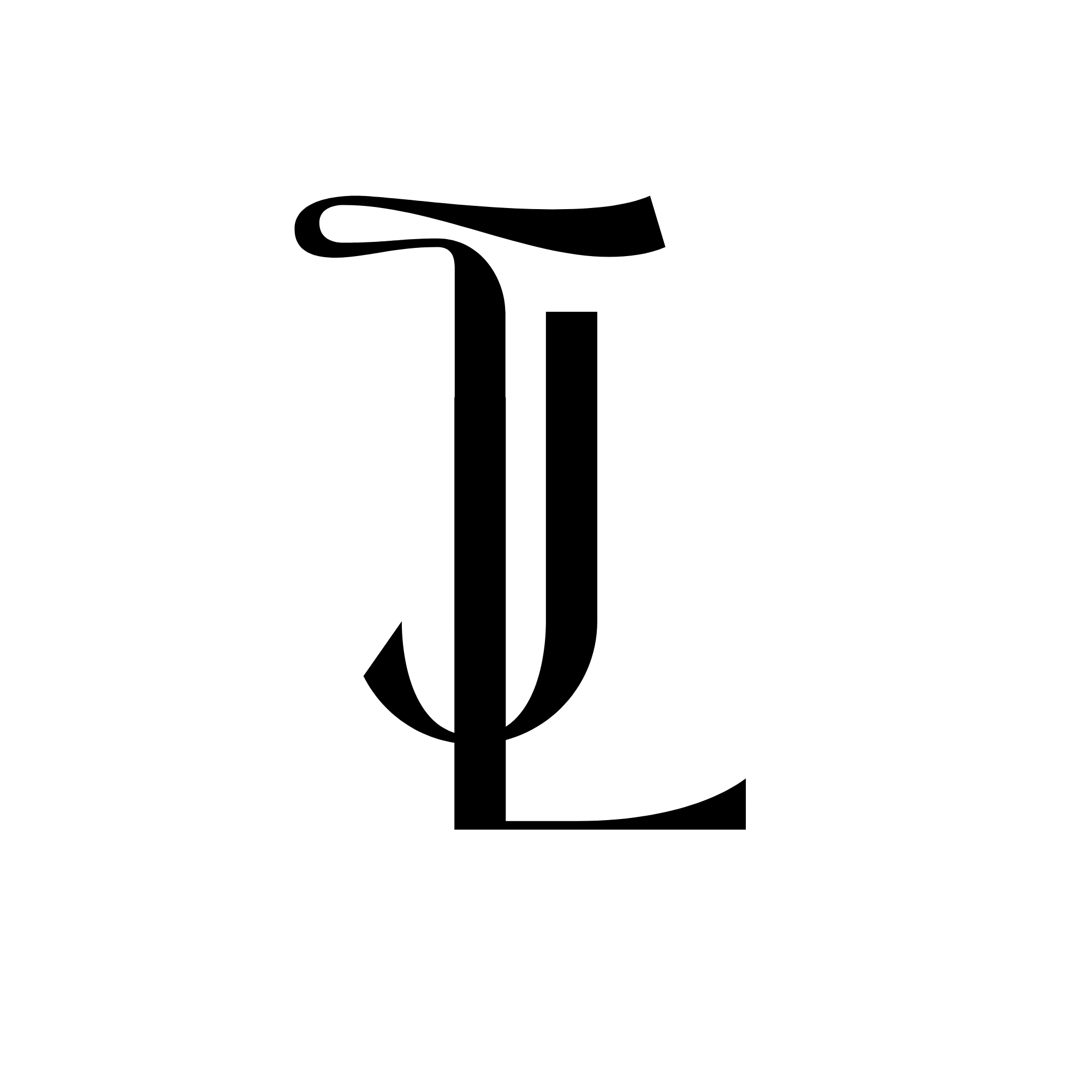
We are supplement-obsessed, vitamin sachets, hair gummies, mushroom tinctures, collagen coffee creamers. Shelves lined with packets, capsules, powders, and pills promising glowing skin, balanced hormones, better sleep, sharper focus, fewer wrinkles. And for some, they deliver. But more often than not, we’re treating symptoms without addressing what the body is actually asking for: real food, better digestion, great sleep, movement and the most important of all, consistency.
Most of us don’t have a supplement deficiency. We have a nutrient deficiency, and supplements are just a temporary patch. They have their place, particularly when correcting something specific under medical supervision, but they were never meant to be your first stop.
Before you reach for another bottle, it's worth asking: what am I not eating enough of?

Start With Protein
Many deficiencies begin with not eating enough quality protein. Protein provides the amino acids needed for nearly every system in the body, from muscle repair to hormone production to collagen synthesis. Most women need 90–120g per day, but few actually hit that consistently.
Focus on high-quality sources: eggs (especially the yolks), poultry, fatty fish like salmon and sardines, grass-fed red meat, lentils, quinoa, and fermented tofu. These also contain iron, B vitamins, zinc, and other essentials that are often taken in pill form.
Prioritise Healthy Fats
Fat-soluble vitamins - A, D, E, and K need fat to be absorbed. If your diet is too low in fat, or if you're using mostly processed oils, you're likely not absorbing key nutrients properly. Instead add in olive oil, avocado, ghee, grass-fed butter, tahini, nuts, seeds, and oily fish to your diet. These not only support skin and brain health but improve your body's ability to use the vitamins you’re already eating.
Don’t Forget the Bitter Things
Bitters support digestion and help you absorb more nutrients from your food. Rocket, dandelion greens, radicchio, lemon water, apple cider vinegar, and digestive teas with fennel or ginger can all help. If you’re taking supplements but still dealing with bloat, fatigue, or poor skin, the issue might not be what you’re missing, but what you’re not digesting.

The Real Multivitamin: Liver
It may not be trendy, but liver is one of the most nutrient-dense foods available. It’s rich in retinol (real vitamin A), iron, zinc, copper, and B vitamins. A small amount, even just once a week, goes further than most expensive multis. Try blending it into bolognese or buying it already desiccated and encapsulated if the taste isn’t for you.
The Food-Based Fix List
Before buying a supplement, try these real foods:
- Magnesium: pumpkin seeds, dark chocolate, almonds, spinach, black beans
- Vitamin C: citrus fruits, bell peppers, strawberries, kiwi
- Iron: red meat, chicken liver, lentils, cooked spinach
- Zinc: oysters, beef, pumpkin seeds, chickpeas
- Omega-3s: sardines, anchovies, mackerel, flaxseeds
- B Vitamins: eggs, liver, beef, whole grains, nutritional yeast
- Vitamin A: liver, egg yolks, full-fat dairy, carrots (for beta-carotene)
- Calcium: sardines (with bones), tahini, yoghurt, kale
Supplements Aren’t Bad
But they shouldn't be a replacement for real food. Use them to fill gaps, not as a replacement for a nutrient-dense diet. Work with a practitioner if you suspect deeper imbalances or deficiencies, and always start with blood work before guessing.
The goal isn’t to cut out supplements entirely. It’s to stop relying on them as a shortcut. The real fix often begins with better food, better habits, and fewer assumptions. Because sometimes what your body really needs isn’t another capsule, it’s a better breakfast.
This article is for informational purposes only and is not intended as medical advice. Always consult a qualified healthcare practitioner before making changes to your diet or supplement routine.
